Concentrated Animal Feeding Operations (CAFO)
Click here for your CAFO Reality Check
CAFOs, or factory farms, are massive, windowless, production facilities where animals are confined in crates or stalls without access to sunshine, fresh air, or natural vegetation. The United States Department of Agriculture defines a CAFO as a feeding operation where at least 2,500 hogs and at least 125,000 chickens are housed. North Carolina is the second largest swine producer and third largest poultry producer in the nation.
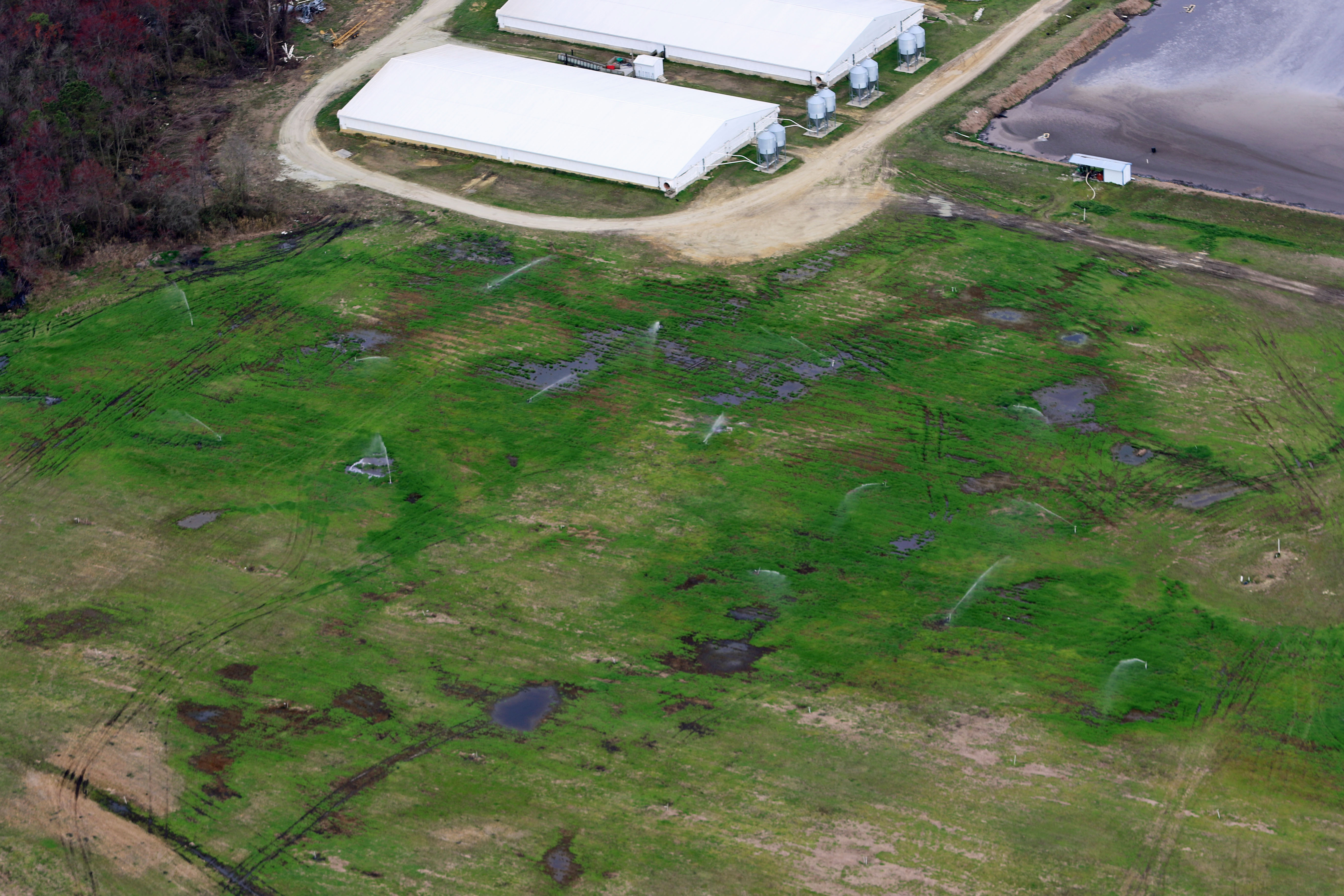
With massive amounts of animals comes massive amounts of unmanageable waste. North Carolina’s hogs produce 10 billion gallons of manure each year. Swine waste is held in large open-air “lagoons”-cesspools. Liquid from these pools is sprayed on to adjacent fields for disposal. Poultry waste, mixed with bedding and carcasses is stored in large, uncovered piles, easily blown away by wind.
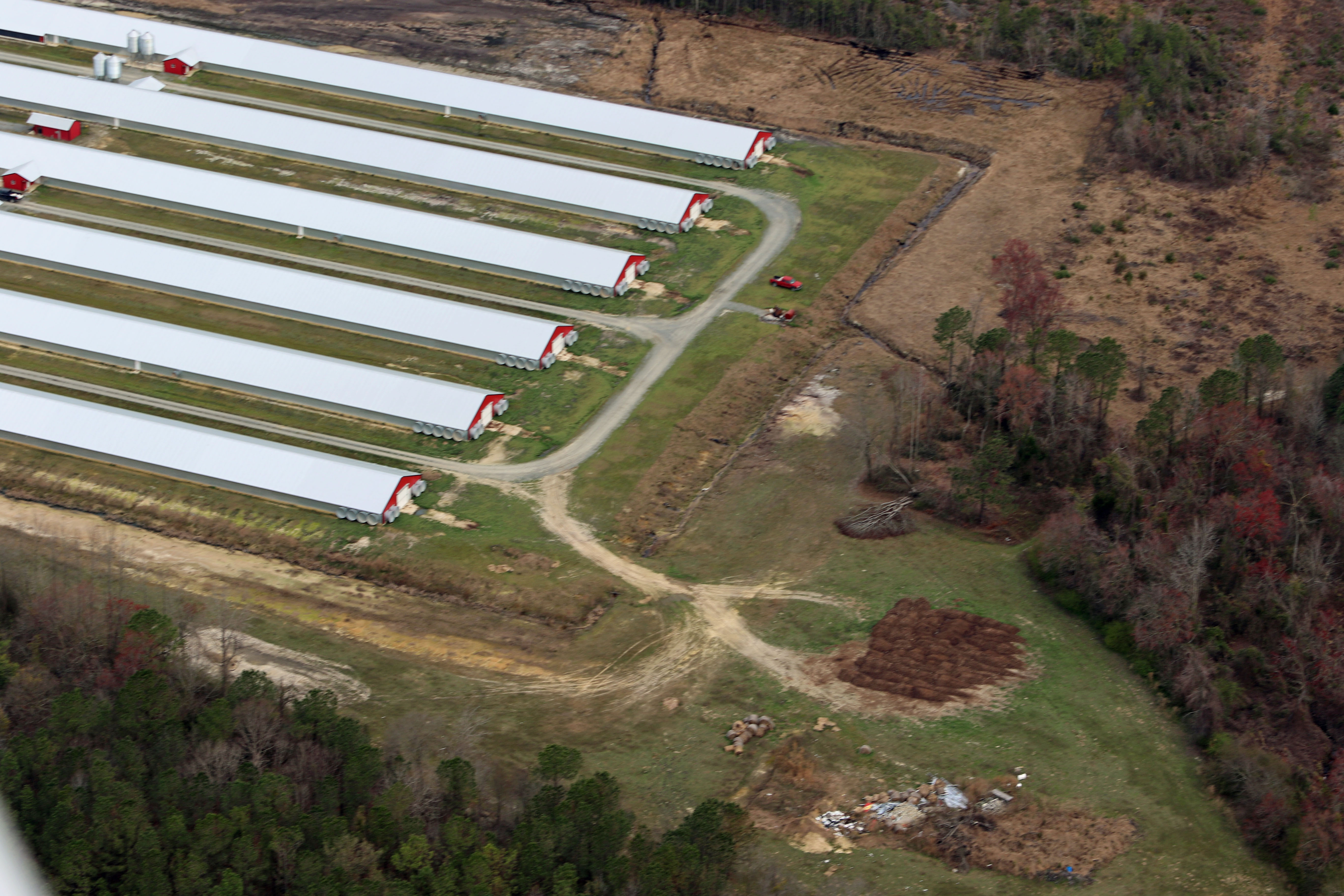
This discharge is entering our waterways, causing fecal bacteria contamination and overloads of nutrients into rivers and streams. This makes water unsafe to recreate in and can cause harmful algal blooms and fish kills. Many of these operations were built in areas prone to flooding. During heavy rain events, massive amounts of waste can be spilled and animals are left to die.
Communities surrounding these facilities are impacted with diminished quality of life due to overwhelming odors and health complications from air and water pollution. These impacts disproportionately affect communities of low income and/or people of color. This form of animal agriculture is unethical, unsustainable, and unacceptable.
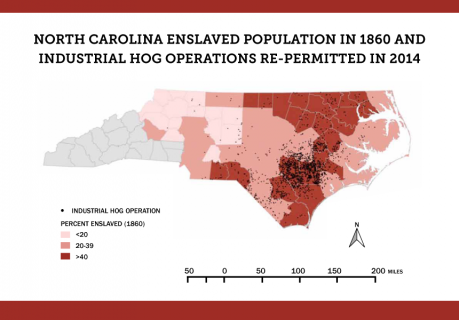
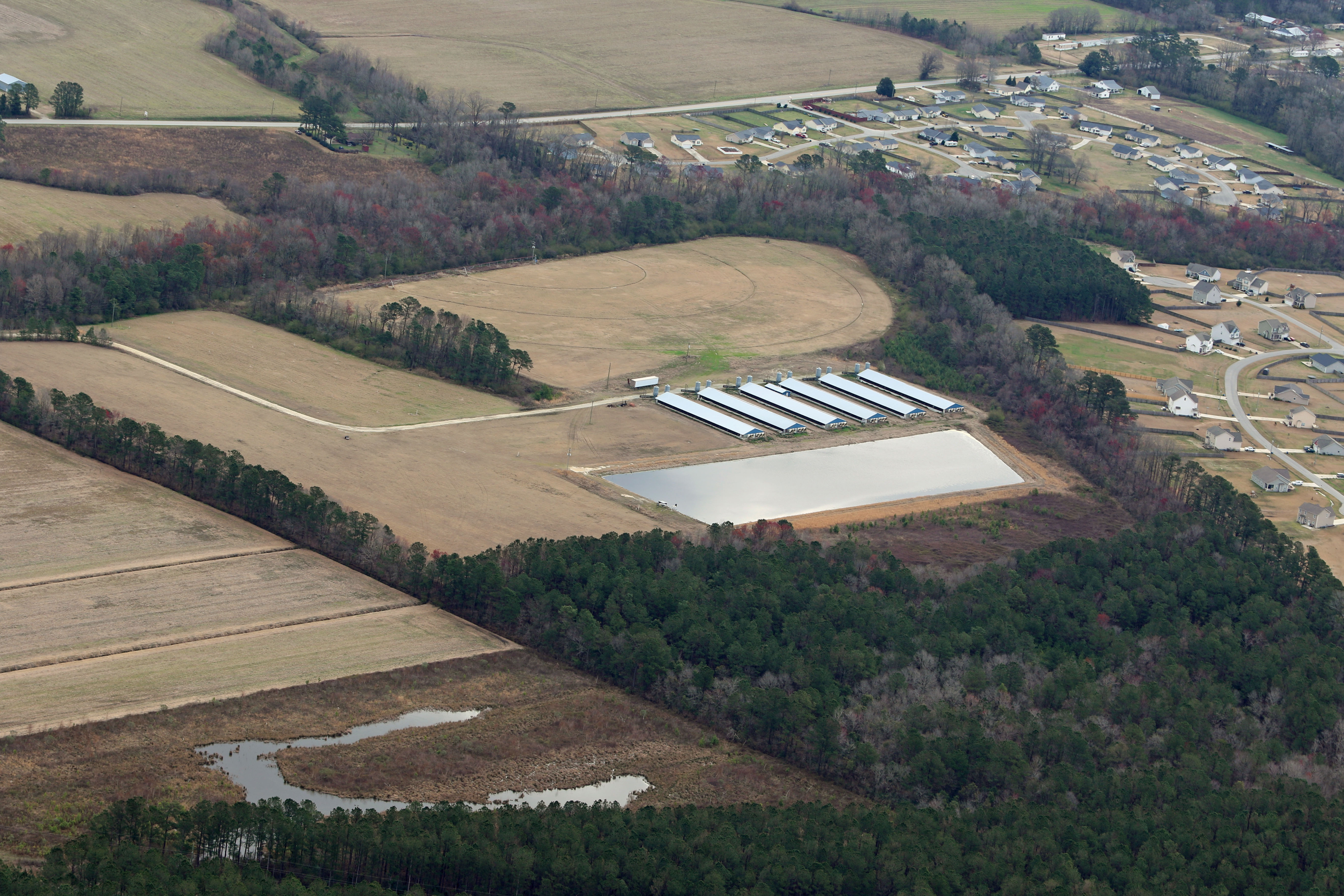
CCRW regularly monitors CAFOs-on foot, on water, and in the air. We test water for bacterial contamination and take photographic evidence of violations and arising problems. We use these results and data to work with partners in bringing the industry into regulatory compliance.
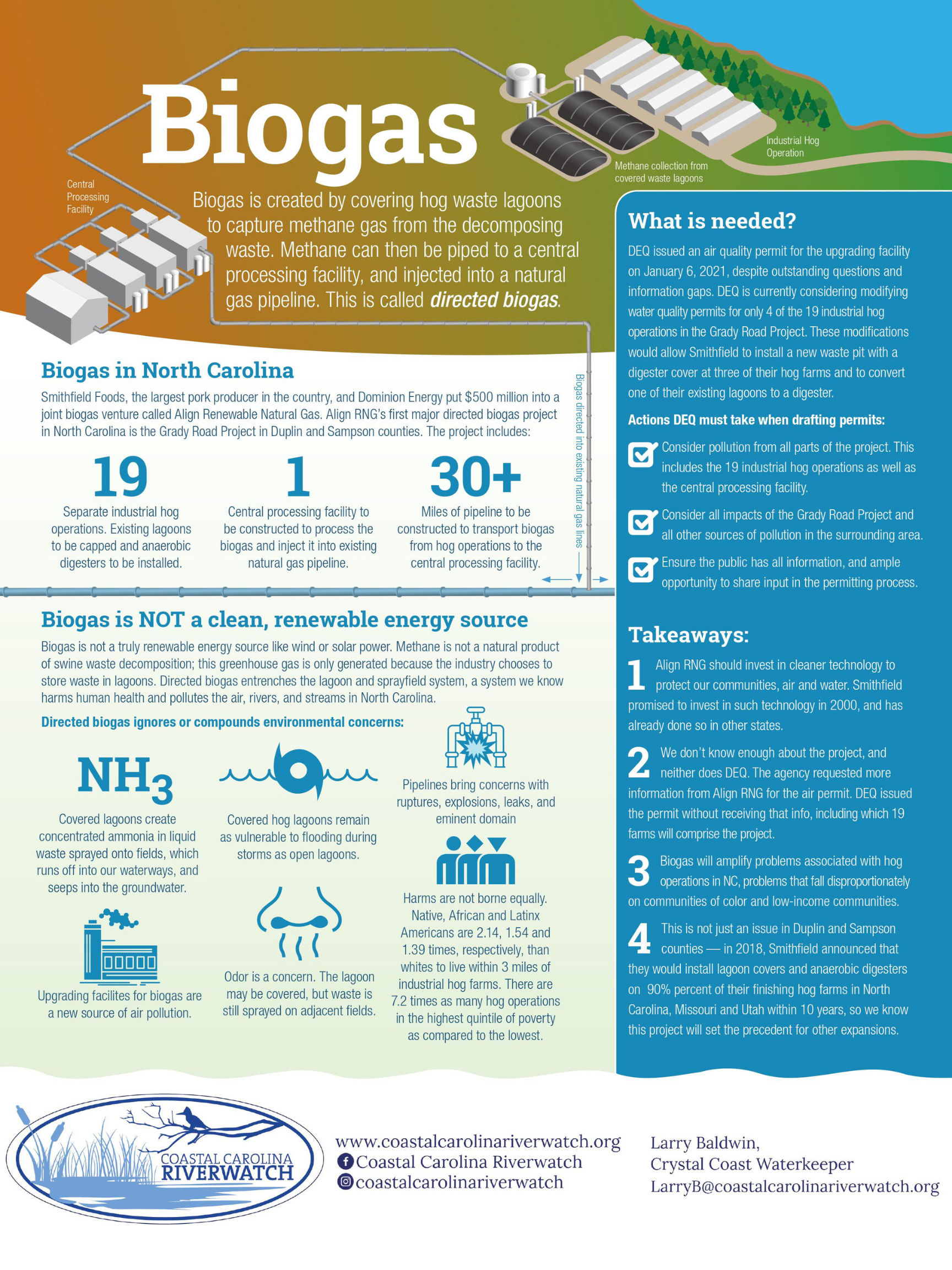
Here is what you can do…
-
Get to know your local farmers. Buy meat from them. CAFOs have all but choked out small family farms.
-
Meatless Monday. Cut back on meat consumption by choosing one day of the week that you and your family refrain from eating meat.
-
Choose a vegetarian or vegan diet.
-
Vote. Research your choices and choose representatives who are supportive of more environmentally sound legislature.
-
Sign petitions to hold corporate agriculture responsible for the resulting environmental pollution and financial hardships shrugged off onto contracted farmers. After all, these contracted farmers are getting pooped on too. Pun intended, of course.
Keep on educating yourself and your community. Slowly, but surely, we can make a difference.
Resources
Watch your Crystal Coast Waterkeeper “Meet the Neighbors” in Duplin County
